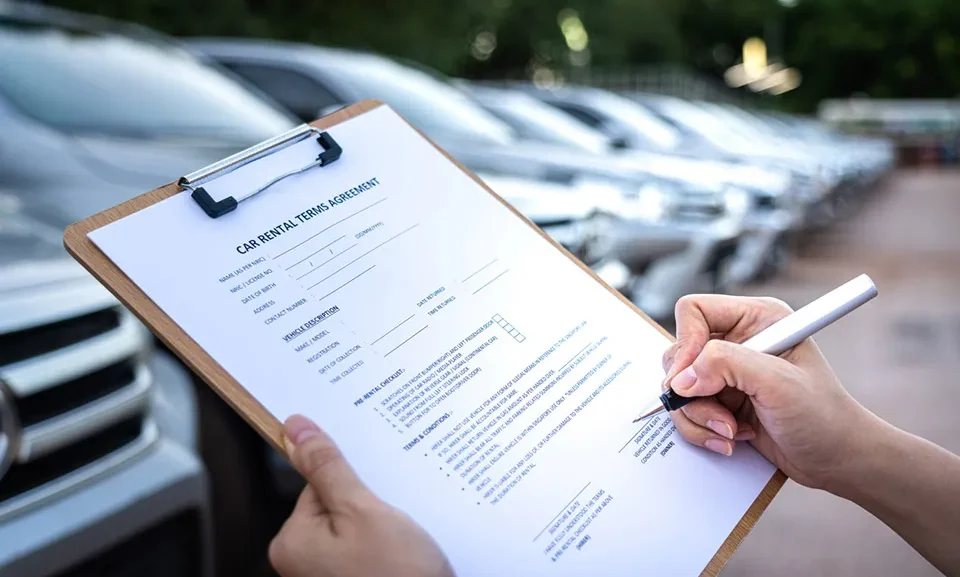Is proof of ownership renewable in Nigeria? In Nigeria, like in many other countries, proof of ownership of assets, particularly properties, vehicles, and land, is essential for legal, economic, and social reasons.
Without proper documentation, individuals and businesses may encounter difficulties in proving their rights to such assets, leading to disputes, legal battles, and financial losses.
One vital aspect of ownership documentation is its renewability. While many people believe that once you have proof of ownership, it remains valid indefinitely, this is not always the case.
In Nigeria, certain assets require periodic renewal of ownership documentation. We will explore why proof of ownership is important in Nigeria.
Also, get ready to learn about the different types of ownership documents, the necessity of renewal, and how this process impacts asset security and economic development.
READ ALSO:
- Who Issues Proof of Ownership in Nigeria?
- How to Get a Proof of Ownership Certificate
- Easy Ways to Renew Proof of Ownership Certificate
- Steps to Get a Proof of Ownership Certificate
- Who Has the Right to Check Vehicle Documents in Nigeria?
Understanding Proof of Ownership in Nigeria
Proof of ownership refers to the legal documentation that establishes an individual’s or organization’s rights to an asset. In Nigeria, this proof could take various forms depending on the type of asset.
For example, for land, a Certificate of Occupancy (C of O) is usually the main document, while for vehicles, a vehicle registration document or certificate serves this purpose. These documents are essential in establishing who legally holds the rights to the asset in question.
For most assets, ownership documentation ensures that the owner has the full legal backing to use, sell, lease, or otherwise control the asset. It also protects the owner from potential claims by others who might assert ownership of the same asset.
Common Forms of Ownership Documentation
- Land and Property: The most recognized form of proof of ownership for land and property in Nigeria is the Certificate of Occupancy (C of O), issued by the state government. Other relevant documents include Deeds of Assignment, Governor’s Consent, and Purchase Receipts. These documents solidify an individual’s or organization’s legal rights over land and buildings.
- Vehicles: Proof of ownership for vehicles includes vehicle registration papers, roadworthiness certificates, and insurance documents. These documents must be regularly renewed to stay valid.
- Businesses: For businesses, proof of ownership can be in the form of certificates of incorporation, partnership agreements, and trade licenses. Businesses must ensure their registration and ownership documentation is updated regularly, especially in sectors where renewals are required.
- Intellectual Property: In the case of intellectual property, ownership is proved through copyrights, patents, or trademarks, which often require renewal after a specific period to remain valid.
Importance of Proof of Ownership
When you ask why is proof of ownership renewable in Nigeria probably you did not think about the importance. Proof of ownership is not merely a bureaucratic formality but it is necessary for several reasons, including legal security, asset value, financial transactions, and economic development.
1. Legal Security and Protection Against Disputes
In Nigeria, property and asset disputes are not uncommon. Many land and vehicle disputes arise due to unclear or conflicting proof of ownership.
With valid and updated proof of ownership, an individual or organization can protect their interests and avoid disputes with third parties. Legal documentation serves as evidence in court, ensuring that the rightful owner is protected under the law.
For instance, in land matters, it is common for multiple individuals or families to lay claim to the same piece of land, especially in rural areas where land titling systems may be less formalized.
Having a valid Certificate of Occupancy or other land documents can help an individual assert their ownership rights, and courts are more likely to rule in favor of those who have legally recognized documents.
2. Facilitation of Transactions
Without proper proof of ownership, transferring ownership or rights to an asset becomes nearly impossible.
Buyers of properties, vehicles, or other assets will not be able to complete transactions without the assurance that the seller has the legal right to transfer ownership. This proof becomes especially important in transactions involving high-value assets like land, homes, or vehicles.
For example, in the real estate market, buyers will often request a copy of the Certificate of Occupancy and other relevant documents before purchasing land or property.
Similarly, the sale of a vehicle will require the provision of valid registration and other documents as part of the transaction process.
3. Access to Financial Opportunities
Ownership documentation is also important for accessing financial opportunities, such as loans or mortgages.
In Nigeria, banks and financial institutions often require proof of ownership of assets, particularly land or property, before approving a loan.
The asset in question is often used as collateral, and without proper documentation, the borrower cannot access funds.
For instance, a homeowner may use their house as collateral to obtain a business loan. However, they must first provide proof of ownership, such as a Certificate of Occupancy, to demonstrate that they have the right to pledge the asset.
The bank will typically verify the authenticity of the ownership documents before approving the loan.
Is Proof of Ownership Renewable in Nigeria?
For those who ask “Is proof of ownership renewable in Nigeria?” the answer is YES. While proof of ownership is vital, it is equally important to ensure that such documentation remains valid and up-to-date.
In Nigeria, many types of ownership documents require periodic renewal to remain legally binding. Failure to renew ownership documents can result in legal complications, financial penalties, and loss of ownership rights.
Below are different types of property renewal in Nigeria:
1. Vehicle Registration Renewal
In Nigeria, vehicle registration is not a one-time process. Vehicle owners are required to renew their registration annually.
This renewal is essential for ensuring that the vehicle is legally recognized by the authorities and that the owner retains the legal right to operate the vehicle on public roads.
Failing to renew vehicle registration can result in fines or even the impounding of the vehicle. Additionally, roadworthiness certificates, which certify that the vehicle is safe for use on public roads, must also be renewed periodically. Vehicle owners must stay on top of these renewals to avoid legal and financial consequences.
2. Land Ownership and Certificate of Occupancy
Land ownership documents, such as the Certificate of Occupancy, do not typically expire; however, they may require periodic updates or endorsements in certain situations. For example, when a property is sold, the new owner must obtain a new Certificate of Occupancy or update the existing one to reflect the change in ownership.
This process often involves obtaining the Governor’s Consent, which legally authorizes the transfer of ownership.
Additionally, land leased from the government often comes with specific terms and conditions, including the duration of the lease.
In such cases, the lease may need to be renewed after the expiration of the agreed-upon period. Failure to renew the lease or update ownership documents can result in legal disputes or the loss of the land.
3. Business Ownership Renewal
Businesses in Nigeria are also subject to periodic renewal requirements. For instance, businesses that are registered with the Corporate Affairs Commission (CAC) must file annual returns to maintain their registration.
Failure to do so can result in penalties, suspension, or even deregistration of the business. Renewing business documentation ensures that the business remains legally recognized and that its ownership structure remains valid.
Consequences of Failing to Renew Proof of Ownership
When you ask why is proof of ownership renewable in Nigeria do not forget to reflect on the consequences of not renewing. Failure to renew ownership documents or keep them up-to-date can have serious consequences for individuals and businesses in Nigeria. These consequences can be legal, financial, or even social in nature.
1. Legal Consequences
One of the most significant risks of failing to renew proof of ownership is the potential for legal disputes. In the absence of valid documentation, other parties may challenge your ownership of the asset.
This is particularly common in land disputes, where the lack of updated ownership documents can lead to lengthy legal battles.
For example, if a property owner fails to update their Certificate of Occupancy after purchasing land, the previous owner may still be legally recognized as the owner in government records.
This can create confusion and lead to legal challenges if the property is sold again or if there is a dispute over the land.
2. Financial Penalties
In some cases, failing to renew ownership documents can result in financial penalties. For example, vehicle owners who do not renew their registration may be fined by law enforcement officers.
Similarly, businesses that fail to file annual returns with the Corporate Affairs Commission may face penalties or lose their legal standing.
Additionally, property owners who do not update their ownership documents may encounter difficulties in selling or leasing their property, as potential buyers or tenants may be hesitant to enter into transactions without valid proof of ownership. This can result in financial losses or missed opportunities.
READ ALSO:
- Where Can I Get a Certificate of Ownership in Nigeria?
- Steps to Get Affidavit for Loss of Car Documents in Nigeria
- Vehicle Registration Documents
3. Loss of Ownership Rights
In extreme cases, failure to renew ownership documents can result in the loss of ownership rights. For example, if a land lease is not renewed, the government or other leasing authority may reclaim the land.
Similarly, a business that fails to renew its registration with the Corporate Affairs Commission may be deregistered, effectively stripping the owners of their legal right to operate the business.
So, when someone asks “is proof of ownership renewal in Nigeria important” just tell the person that it is. This is because it is a vital component of asset security in Nigeria, ensuring that individuals and businesses have the legal rights to control and transfer their assets.
Regularly updating and renewing ownership documents helps avoid legal disputes, financial penalties, and the potential loss of ownership rights.
In a country where property disputes and ownership challenges are common, maintaining valid and up-to-date proof of ownership is essential for legal protection, financial security, and overall peace of mind.




